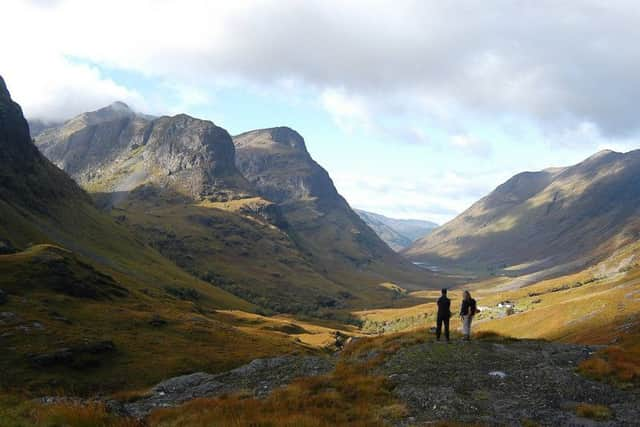Archaeologists trace lost settlements of Glencoe destroyed after 1692 massacre
National Trust for Scotland has carried out initial survey work at three former settlements which fall within its property at the glen with more detailed studies due to follow.
Glencoe was the scene of one of Scotland’s most infamous murders of the clan era when the state ordered the killing of the MacDonalds of Glencoe after their chief tried but failed to meet a deadline to pledge allegiance to King William II.
Advertisement
Hide AdDerek Alexander, head of archaeology at the trust, who was speaking ahead of the anniversary tomorrow of the 1692 massacre, said the work would enrich the understanding of the cultural heritage of the glen.


He said: “There are thousands of people who drive up the road through Glencoe and stop and look at the majestic beauty of the place but I think the human side of the story is often overlooked.
“This is an iconic landscape and what we are trying to find are the physical remains that tie that landscape to the story of the massacre. I’m surprised that is not been done before.”
At least 38 MacDonalds of Glencoe were murdered by troops led by Robert Campbell of Glenlyon, the killings all the more reviled given the soldiers had spent 12 to 13 days in the glen enjoying cherished Highland hospitality in the homes of their hosts.
Many more Highlanders are believed to have died after fleeing their townships, with some leaving their homes in advance after being tipped off about the planned execution by disenchanted soldiers.


Mr Alexander said the focus was on three former townships – Achtriachtan, Achnacon and Inverrigan.
Advertisement
Hide AdRoy’s 18th century military maps show six settlement in total through the glen – but by the 19th century they disappear from documents, given the townships were later cleared for sheep.
“We can see there are eight buildings at Achtriachtan and the same again at Achnacon. There might even be evidence of an inn. You are looking at between 40 to 50 or 60 people living in the one settlement
Advertisement
Hide Ad“We know 30 were killed during the massacre but we don’t know how many died getting away. Once you start to look at the massacre from a landscape point of view you can plot the sequence of what happened and see how some people managed to get away, probably through the valley of Gleann Leac na Muidhe.”
Glenlyons solders were quartered three to five to a cottage through the glen, from Carnoch to the loch below Aonach Eagach.
It was at Achnacon that Seargeant Robert Barber gathered his men in the early morning of 13 February 1692, some time before 5am, and ordered the kill. The soldiers then marched through the townships, with Barber taking 18 men to the home of his host, MacDonald of Achnacon. Musket shots were fired through the windows, according to John Prebble’s Glencoe, with the host’s brother instantly killed.
Achnacon managed to escape after being dragged outside. Meanwhile, 14 people were reportedly burned to death in one cottage.
Mr Alexander said the remains found at the three sites were likely turf and stone homes.